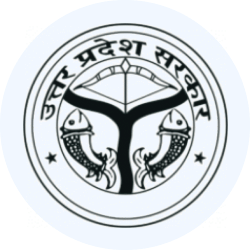Should Strikes be Banned - Essay, UPSC MAINS | Course for UPPSC Preparation - UPPSC (UP) PDF Download
Should Strikes be Banned
structure
(1) Opening — What is Strike? Why? Types.
(2) Body — Industrial relations have reached the lowest ebb.
— Management cares little and workers are becoming more aware.
— Economy loses, management loses, workers lose, common man loses.
— Many times used as springboard by politicians and unscrupulous people.
— Banning will make workers subservient to the management. Against their rights.
— IR should be improved. Professionalism. Government intervenes in legitimate cases. TU’s not used by political parties.
(3) Closing — Community’s and nation’s interest should be supreme.
Strike is the refusal by workers to work, in order to pressurise the management to accept their demands. Strike can also be ‘sympathy’ strike to express solidarity with their brethren elsewhere. Other forms that strike can take are work to rule, go slow, lightening strike, token strike etc. In another innovative form in Japan, workers may work more in order to express their resentment. In whatever form it is, strike is a weapon to be used only in the extreme circumstances when all other democratic means to negotiate have come to a nought.
Today, management and workers relation in the government in our country is not so good. There is very little understanding, leave alone solidarity between the management and the workers. Lack of effective communication between the two creates a lot of misunderstanding and heat. So, strike today has become almost the sole means for the workers to force the management accede to their legitimate demands. The result is that strikes have become more frequent and sometimes, violent too.
Who gains by strike? Whatever may be the end result, it is always found that strike harms the nation, the community, the workers as well as the management. During the period of strike, production comes to a standstill. Inventories pile up. Stores are clogged. Transport sector slumps. The workers remain idle during the period. They face monetary and psychological problems. Their job is threatened. Millions of man-hours go waste. The management also doesn’t lose any less. It loses its sales, profits, market as well as sleep. It creates more bitterness in the minds of the workers and the management alike further worsening the relations. Management becomes repressive and coercive threatening lockout and the workers become agitated, restive and sometimes, violent.
However, the biggest loser is the community and the nation. In a developing country like ours, we require most efficient utilisation of our resources. We require that production should be maintained at high level. But strike does just the opposite. Man -power, money, material resources, machines everything remain idle and this constitutes a loss. Production level falls down, inventory losses mount, transportation industry suffers, shortages are created, prices of commodities sky-rocket. The entire planning and social welfare schemes go haywire. And can one forget the miseries of common man who suffers silently because he neither has money power of the industrialists, nor the muscle power of the workers. And if the employees of essential services go on strike the problems are compounded.
Aren’t the reasons cited above sufficient to convince one that strikes should be banned? Before jumping to any conclusion, however, we should realise that ours is a democratic country. If today so many strikes occur it is not just because the industrial relations are bad but also because workers have become more aware of their rights which is, in a way, an achievement for our democracy. If this right to strike is taken away from the workers, they will be left at the mercy of the management with no recourse to justice. And in our country, with a feudal tradition, it will not be a very happy situation. But strikes endanger the very functioning of our democracy. So what is the remedy?
Perhaps the most important remedy is one based upon the maxim—Prevention is better than cure. It is important that the industrial relations are improved. We need profit making units but they should be owned and managed not by money minded people but by professionals. Management ought to look after the welfare of the workers. It requires change in the attitude of both the management and the workers. Management should understand that happy workers are more efficient and work harder. Also, workers should cultivate a sense of belonging for the company. It is for the Government to enact suitable legislation to improve working conditions and welfare of the workers. Better channels of communications should be built between the two. Worker’s participation in management can remove many of their grievances. It is enshrined in our constitution and it is for the government to make suitable laws to realise it. Above all, it is our work culture, our attitude towards work that should change. All this will go a long way in reducing the need and frequency of strikes.
‘Strike is a form of Satyagraha’, claimed Gandhiji. If today it has acquired a bad name, it is because politicians and unscrupulous leaders have virtually hijacked trade union and they use worker’s grievances to further their own career and sometimes, even to blackmail industrialists. It is not strike that should be banned but the misuse of this right for unrelated issues as well as for any petty grievance. It should be resorted to when negotiations yield nothing but not to keep the whole country at ransom.
|
113 videos|360 docs|105 tests
|
FAQs on Should Strikes be Banned - Essay, UPSC MAINS - Course for UPPSC Preparation - UPPSC (UP)
| 1. Should Strikes be banned? |  |
| 2. What are the advantages of allowing strikes? |  |
| 3. What are the disadvantages of allowing strikes? |  |
| 4. Are there any alternatives to strikes for resolving labor disputes? |  |
| 5. How do strikes impact the overall labor market? |  |

|
Explore Courses for UPPSC (UP) exam
|

|

















